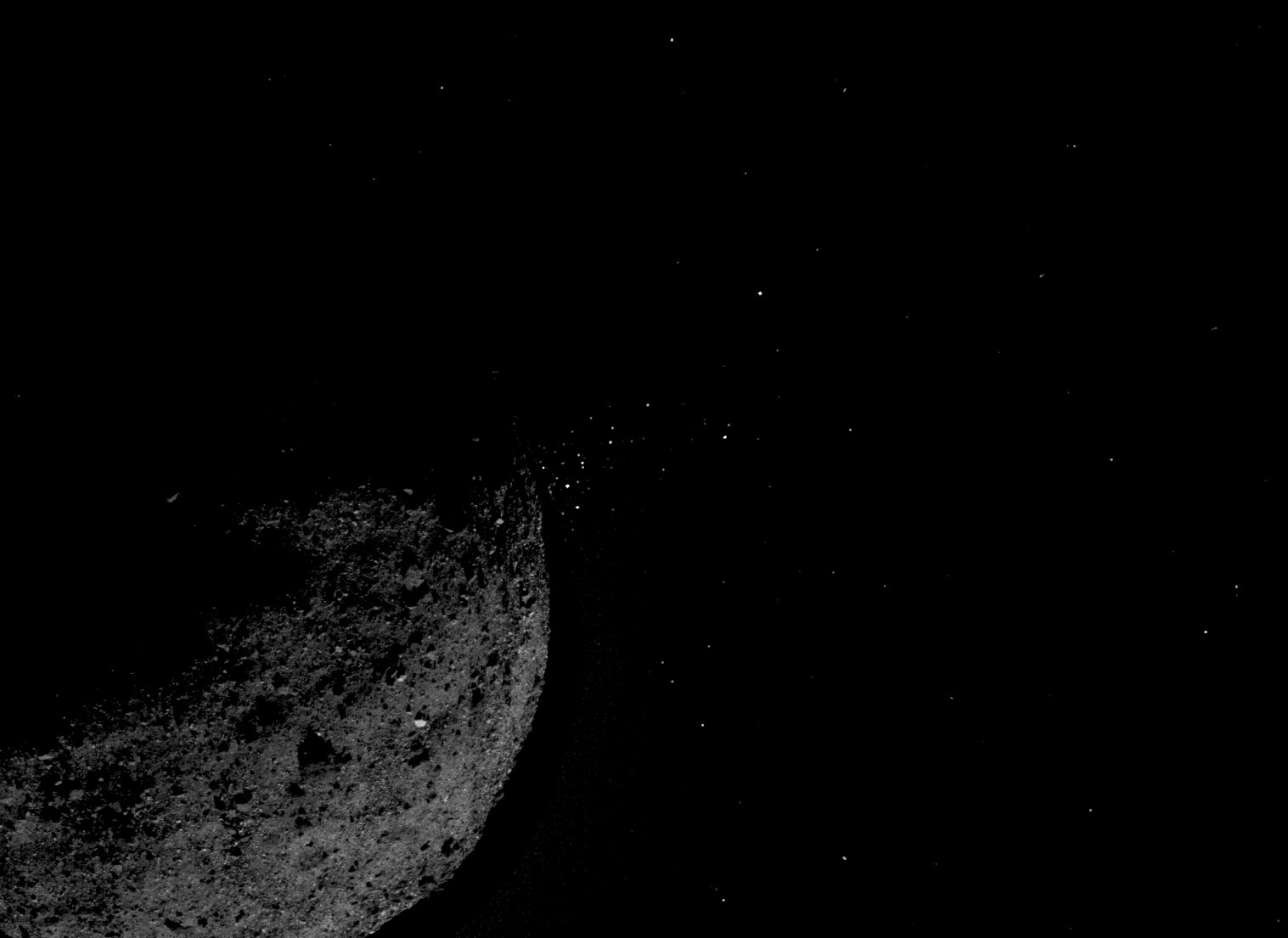Nasa spacecraft that picked up pieces of asteroid is leaking them into space as it returns home
Osiris-Rex appears to have done its job too well, Nasa says

Your support helps us to tell the story
From reproductive rights to climate change to Big Tech, The Independent is on the ground when the story is developing. Whether it's investigating the financials of Elon Musk's pro-Trump PAC or producing our latest documentary, 'The A Word', which shines a light on the American women fighting for reproductive rights, we know how important it is to parse out the facts from the messaging.
At such a critical moment in US history, we need reporters on the ground. Your donation allows us to keep sending journalists to speak to both sides of the story.
The Independent is trusted by Americans across the entire political spectrum. And unlike many other quality news outlets, we choose not to lock Americans out of our reporting and analysis with paywalls. We believe quality journalism should be available to everyone, paid for by those who can afford it.
Your support makes all the difference.A Nasa spacecraft that picked up pieces of an asteroid is leaking them into asteroid on its way home, the space agency has said.
The probe picked up such as substantial sample that a rock is wedged against the container door, which means they are falling out back into space.
Nasa's Osiris-Rex spacecraft arrived on Asteroid Bennu last week, kicking up a debris cloud of rocks that were caught inside its robotic arm. They will then be transported back to Earth for research here.
But Nasa announced that it had caught too many of the rocks and that it was now working to stop them falling out into space.
The leakage had the OSIRIS-REx mission team scrambling to stow the collection device to prevent additional spillage.
"Time is of the essence," Thomas Zurbuchen, NASA’s associate administrator for science, told reporters.

Zurbuchen said mission teams will skip their chance to measure how much material they collected as originally planned and proceed to the stow phase, a fragile process of tucking the sample collection container in a safe position within the spacecraft without jostling out more valuable material.
NASA will not know how much material it collected until the sample capsule returns in 2023. The troubleshooting also led mission leaders to forgo any more chances of redoing a collection attempt and instead commit to begin the spacecraftâs return to Earth next March.
"Quite honestly, we could not have performed a better collection experiment," OSIRIS-REx principle investigator Dante Lauretta told reporters, affirming a hearty sample size.
But with the door lodged open by a rock and the "concerning" images of sample spillage, "we're almost the victim of our own success here," he added.
The roughly $800 million, minivan-sized OSIRIS-REx spacecraft, built by Lockheed Martin, launched in 2016 to grab and return the first U.S. sample of pristine asteroid materials. Japan is the only other country to have accomplished such a feat.
Asteroids are among the leftover debris from the solar systemâs formation some 4.5 billion years ago. A sample could hold clues to the origins of life on Earth, scientists say.
Additional reporting by Reuters

Join our commenting forum
Join thought-provoking conversations, follow other Independent readers and see their replies
Comments